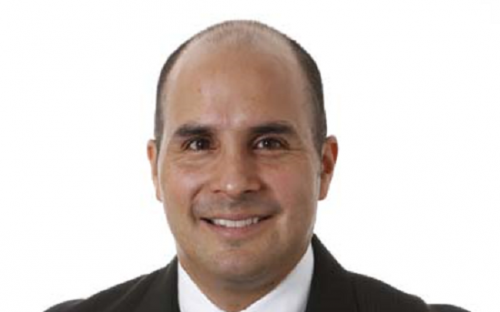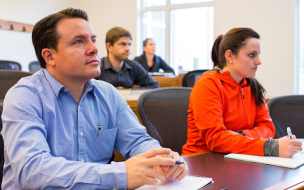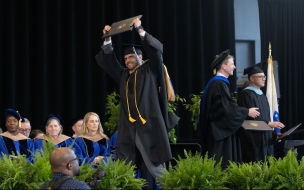A recent graduate of the MBA program at Sydney’s Australian Graduate School of Management (AGSM), he now works as a business improvement manager at a business based in the Australian capital city.
Before that, Francisco worked as a financial controller for a group of SMEs providing surveying services for the construction and mining sectors in Australia. In 2004, he joined the professional services firm EY, where he worked as a consultant, providing business risk services to companies in Peru.
Why did you decide to begin an MBA?
I wanted to learn more about business strategy, and show employers and clients what I know and what I can achieve.
I also wanted to leave the “number crunching” world and add more value to employers and clients, with a holistic understanding of how businesses work.
How would you describe your experience at AGSM?
Amazing. It was possibly life-changing, because you learn so much from every opportunity they give you to test yourself. It is not only about the subjects, which are wonderfully designed and delivered; it is about the experience as a whole. Every single activity is very important for your development as a business professional.
What are the key benefits of being based in Sydney?
Compared to other Australian cities, it would be access to more opportunities and activities — professionally and socially.
Compared to other cities in the world, Sydney is a beautiful place to live, with plenty of beaches and parks, and a city from where you can easily go to plenty of other interesting places, nationally and internationally.
Tell us about your founded company FRNK Business.
I have worked with plenty of SMEs during my career. I observed that the advisory/consultancy services in this market segment have some gaps.
The aim is to support SMEs, mainly focused on strategy, technology, operational efficiency and finance, as they strive in these challenging, quick-changing times.
Big companies are becoming smaller, and together with advances in technology and information, SMEs will play a much more important role in the economy in the future.
This venture is still a work in progress. I will be working more on it in the future.
Why are you interested in joining the boards of not-for-profit organizations?
Because I have an interest in social causes, which are usually the aim of not-for-profits. Additionally, my experience is in organizations of about the size of most not-for-profits.
What are your future career plans?
To keep working hard in all areas of a business, not only finance. I mainly want to ensure that I keep on learning and enjoying the journey.
What advice do you have for people who are applying to business school?
It is an amazing world of challenge and change out there. For any professional in business, it [business school] should be a must.
It is also very important to choose the right school. I have studied at least three postgraduate degrees and in various institutions, and I can say that some really make a difference.
If there are successful businessmen that might not have attended business schools, or dropped out, imagine how much more they could have achieved if they studied business, and at the right school.
RECAPTHA :
9f
32
e8
f1








